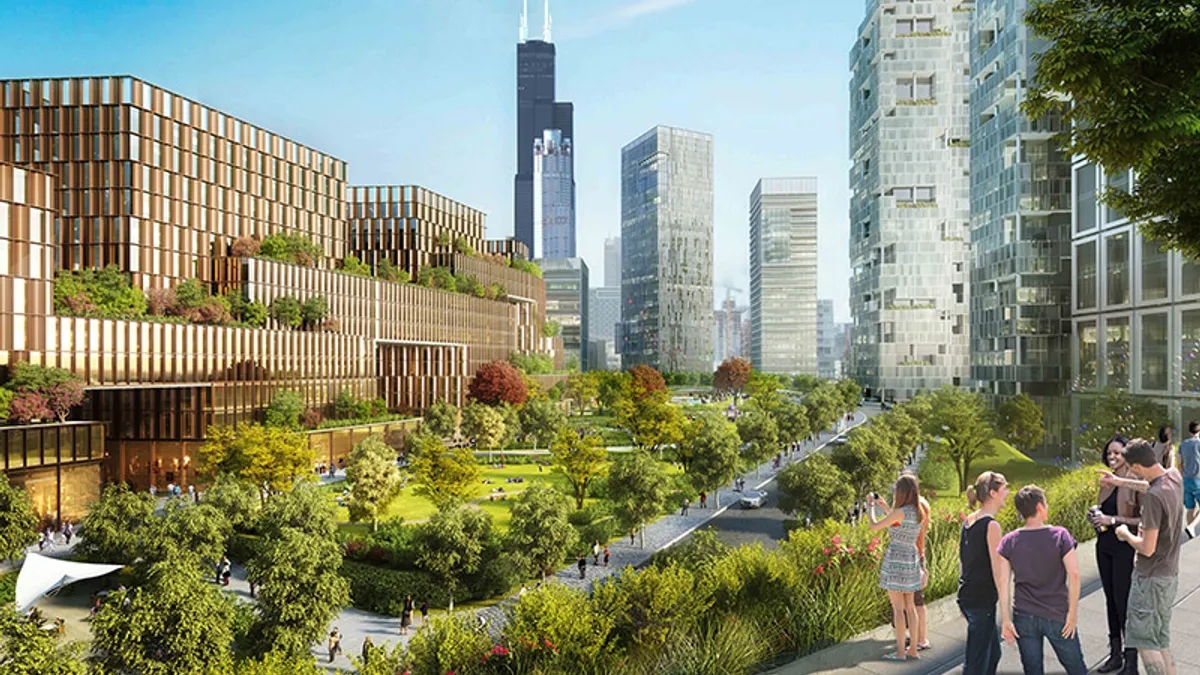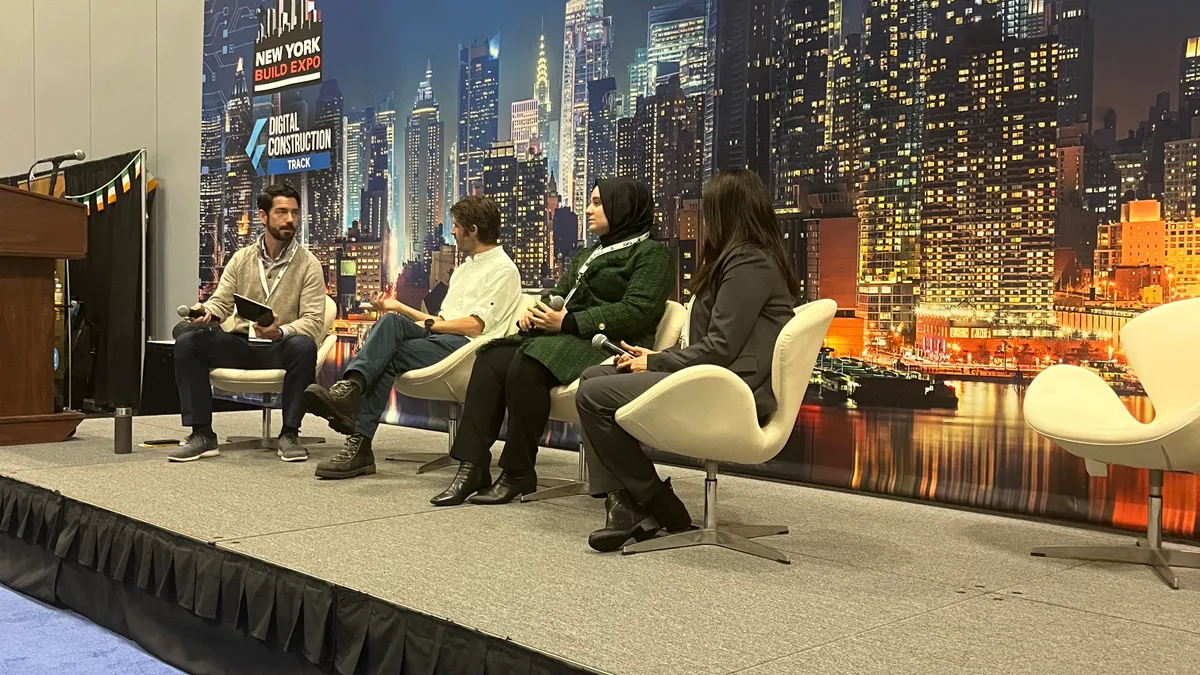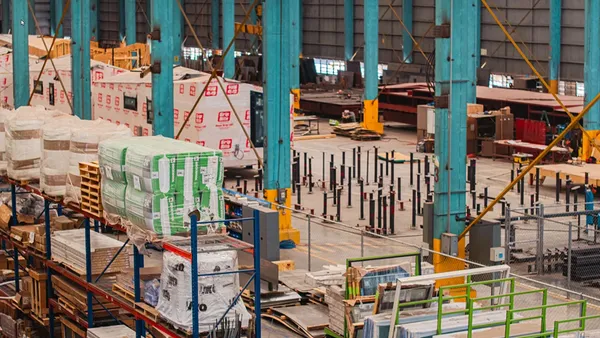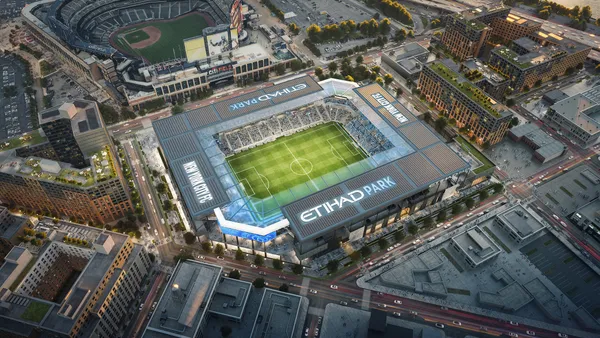Dive Brief:
- The Chicago Community Development Commission at its Feb. 5 meeting approved a 141-acre tax increment financing (TIF) district for The 78, Related Midwest’s $7 billion mixed-use project along the Chicago River, Crain’s Chicago Business reported. The plan must next win the approval of the Chicago City Council in March.
- The TIF, if it gets the green light from the city council, could generate as much as $551 million for The 78. The money would go toward the cost of infrastructure at the 62-acre site. Projects eligible for TIF reimbursement are those that will help create access to the development, including a new $365 million transit station, an $85 million track realignment and $100 million of street and seawall improvements.
- Proponents of The 78 include the local building industry, which stands to benefit from the 10,000 construction jobs the project is supposed to generate during the next 20 years. Some members of the city council, however, are for delaying a final vote on the TIF while there is an ongoing federal corruption probe at city hall and an investigation that will determine if a former alderman’s activities could have tainted The 78’s approval process, among other alleged improprieties.
Dive Insight:
The 78 project will include everything one would expect from such a massive city development — residential, retail, office and entertainment space, all connected by public space, recreation facilities and other features that will make it the walkable, live-work-play environment that has become so popular with developers, as well as with the residents and businesses they hope to attract.
But Chicago is not the easiest city when it comes to development approval, and, like Sterling Bay’s Lincoln Yards development, Related had to make some changes before winning approval, such as moving the transit station to the opposite side of the street from its proposed location.
Sterling Bay, on the other hand, was forced to change the entire concept of its $6 billion Lincoln Yards development to secure the approvals it needed to move forward.
After Chicago’s 2nd Ward Alderman Brian Hopkins rejected the project’s original master plan on behalf of his constituents, Sterling Bay agreed to remove the 18,000-seat soccer stadium and Live Nation entertainment district, both major project anchors, because locals feared the potential traffic congestion and changes to the character of the existing neighborhood. The developer also increased park space to 40% of the project, lowered both density and building height and committed to more infrastructure improvements.
The project was approved by the Chicago Plan Commission on Jan. 24 and will next go before the city council’s zoning committee.














